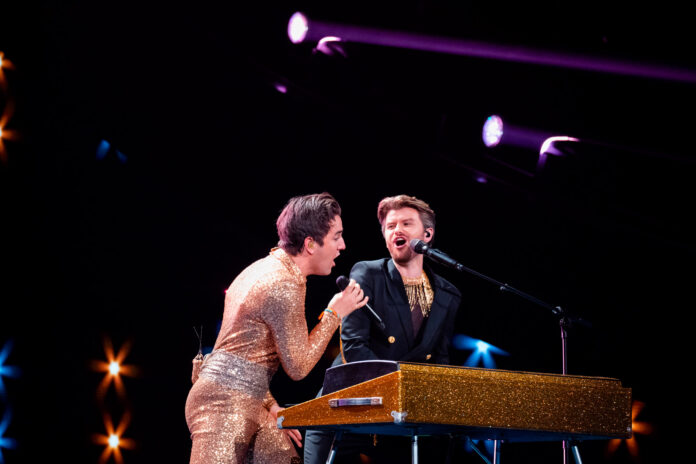
Once the undisputed king of the Eurovision Song Contest, Ireland struggles to reclaim its crown. What lies behind this dramatic change in fortunes?
Ireland was the nation to beat at the Eurovision Song Contest for decades. They hold the record for the most victories with seven wins, four of which occurred in the 1990s. Their domination of the contest was such that they became the yardstick against which other countries measured their success. But in recent years, Ireland has struggled to find its footing, falling far from its past triumphs. Last night, Ireland was drummed out again after Wild Youth failed to make Saturday evening’s Eurovision Song Contest 2023 Grand Final.
In a now deleted Instagram post, Conor O’Donohoe lead singer of Wild Youth shared his disappointment with fans: “We did everything we could. Michael Kealy [RTE’s Eurovision Head of Delegation] was amazing. But the truth is they never give Ireland a chance, sorry if we let you down. We tried our best.”
Changing musical tastes and trends
In the 1990s, Ireland’s ballads and heartfelt melodies scored big. Today’s Eurovision has become a more diverse and eclectic affair. Modern pop, electronic music, and dance tracks have become more prevalent in recent years, reflecting the broader trends in the global music scene.
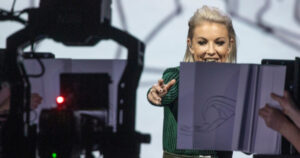
In 2019, “22” was an upbeat pop song with a retro feel, but it failed to resonate with the juries and the televoters, resulting in a last-place finish in its semi-final. Brooke Scullion had a catchy pop tune but was not particularly original or memorable. In 2021 Lesley Roy’s “Maps” was an upbeat, pop-infused entry that aimed to break free from Ireland’s traditional ballad-heavy repertoire. However, the song struggled to leave a lasting impression in a year where many other entries showcased unique and powerful musical styles.
Changing landscapes
 The Eurovision landscape has altered dramatically since the fall of the Iron Curtain, with many Eastern European countries proving themselves as formidable competitors. Scandinavian countries have upped their game. It’s no longer ‘all about Sweden’. Norway and Finland have become more solid contenders. Iceland takes risks. Eurovision is, after all, a chance to promote music to almost 200 million TV viewers and music fans.
The Eurovision landscape has altered dramatically since the fall of the Iron Curtain, with many Eastern European countries proving themselves as formidable competitors. Scandinavian countries have upped their game. It’s no longer ‘all about Sweden’. Norway and Finland have become more solid contenders. Iceland takes risks. Eurovision is, after all, a chance to promote music to almost 200 million TV viewers and music fans.
In 2016, Ireland sent ex-boyband member Nicky Byrne with the song “Sunlight.” The song failed to make an impact on the audience. In 2017, Brendan Murray’s “Dying to Try” was too similar to songs Ireland sent in the glory years.
Production quality and staging
 Eurovision has become a showcase of music and visual spectacle, with elaborate staging and impressive production values. Countries like Sweden, Azerbaijan, and (whisper) Russia have invested heavily in creating memorable performances, resulting in slick, polished acts that are difficult to compete with.
Eurovision has become a showcase of music and visual spectacle, with elaborate staging and impressive production values. Countries like Sweden, Azerbaijan, and (whisper) Russia have invested heavily in creating memorable performances, resulting in slick, polished acts that are difficult to compete with.
Ireland’s entries, however, have often lacked the same level of investment in staging and production. This can leave their performances somewhat dated and overshadowed by their more extravagant competitors.
The performers
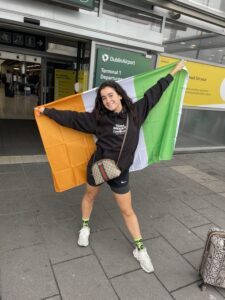
While it may be tempting to blame Ireland’s recent Eurovision struggles solely on the performers, it is crucial to remember that success in the contest is a product of several interconnected factors. Wild Youth didn’t look like they wanted to be there last night, but the same cannot be said of Brooke Scullion.
The performers represent only one aspect of the overall package. They are responsible for conveying the emotion and energy of the song on stage, but the song’s composition, lyrics, and production also play significant roles in determining its success. Furthermore, the creative team’s decisions regarding staging, choreography, and visual elements contribute to the performance’s impact. Whoever put Conor O’Donohoe in a gold jumpsuit should be dragged to The Hague for a tribunal.
Selection process
This is perhaps the biggie. How countries select their Eurovision entries varies, with some opting for internal selections and others hosting national finals. RTE is glued to the middle-of-the-road long-running chat show ‘The Late Late Show”. The kind of programme that was an ageing dog would have been put out of its misery years back.
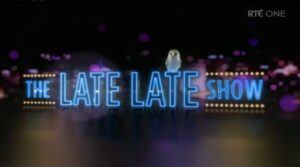
“The Late Late Show” is hardly cutting edge. This can restrict those acts willing to take a punt on Eurovision, potentially excluding more diverse or innovative entries from the selection process. It’s primarily an entertainment program emphasising creating an enjoyable viewing experience rather than a rigorous, competitive selection process. The timeslot and established audience limit engagement with the selection process, as viewers may not be as invested in the outcome compared to a dedicated Eurovision national final event.
Many fans argue that the format of the national final and the limited exposure given to the competing songs have hindered Ireland’s chances of success. There are calls for a revamp of the selection process to reflect Irish talent’s diversity and quality.
One step further …
To turn things around for next year’s Eurovision Song Contest, Irish broadcaster RTE should consider several strategies to improve their chances of success. Here are some suggestions:
- Revamp the selection process: RTE could create a new, dedicated national selection show focusing solely on choosing the Eurovision entry. This would allow for greater exposure of the competing songs, encourage audience engagement, and emphasise the competitive aspect of the selection process.
- Encourage diversity and innovation: RTE should actively seek out and promote diverse musical styles, songwriters, and performers to participate in the national selection. By embracing different genres and innovative approaches, Ireland can increase the likelihood of finding a unique and memorable entry that stands out in the competition.
- Collaboration with established and emerging talent: RTE could foster collaborations between established Irish musicians, producers, and songwriters and up-and-coming talent to create a dynamic, contemporary entry. Drawing on the wealth of experience in the Irish music industry can result in a strong, competitive song.
- Invest in staging and visual presentation: RTE should prioritise creating an engaging and visually striking performance to compete on the Eurovision stage. This can be achieved by collaborating with experienced stage directors, choreographers, and visual artists to develop a cohesive and memorable presentation that complements the song.
- Build public support and interest: Generating excitement and support for the Irish entry is vital for success at Eurovision. RTE should consider organising events, concerts, and promotional activities leading up to the contest to build momentum and encourage public engagement with the chosen song and artist.
- Learn from past performances: RTE should analyse the factors that contributed to recent failures to identify areas for improvement. By understanding the evolving landscape of the Eurovision Song Contest, Ireland can adapt and develop strategies to remain competitive in the contest.
- Foster a long-term vision: RTE should develop a long-term vision and strategy for Ireland’s participation in the Eurovision Song Contest, focusing on nurturing local talent, promoting the contest domestically, and consistently delivering strong entries that reflect Ireland’s rich musical heritage.
By implementing these ideas and focusing on creating a unique, memorable, and competitive entry, RTE can increase Ireland’s chances of success at the Eurovision Song Contest and potentially reclaim its position as a dominant force in the competition.
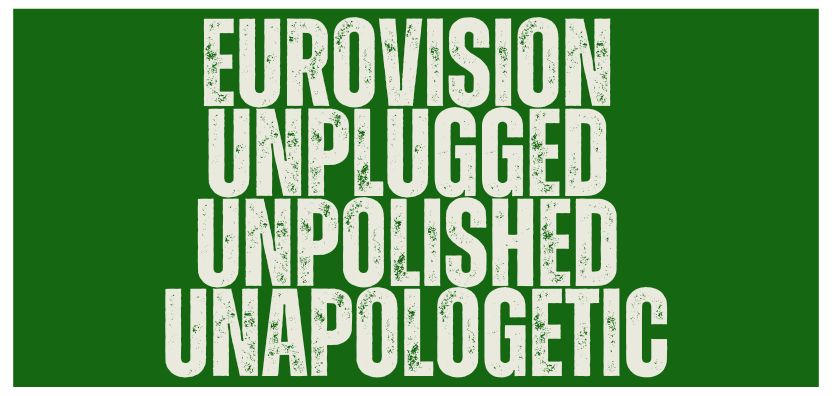





The problem here is that while change might be neccessary there’s no guarantee with any of it and that needs to be acknowledged uprfront. While all of the points laid out in the article might sound reasonable they could all be followed and still end up with a semi-final elimination.
With the exception of a dedicated national final Ireland have tried all of the above over the last few years and not achieved any real success with any of it. We’ve done internal selections, we’ve done collaboration with industry, we’ve done (not a lot) some different staging ideas.
About the only thing I can completely 100% agree on is the ditching of the Late Late Show connection. It’s not a good fit between the two formats and potentially it is limiting to the type of submission because it conveys an attitude that RTE really don’t care too much about their entry.
There is potentially a more fundamental question as to whether this is actually RTE’s attitude and therefore they don’t want to change anything because Eurovision is just a box ticking exercise to be done every year and they don’t really want to come anywhere near winning the thing and having to stage it but that’s another debate entirely.